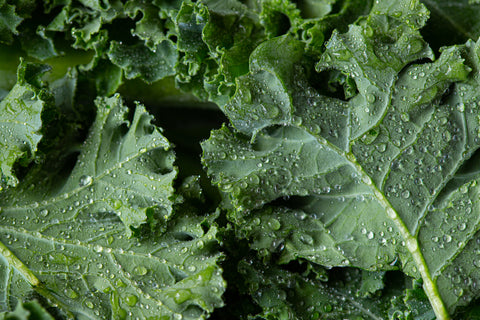Let’s take a look:
-
Lowered cholesterol: Regular fiber consumption has been shown to reduce LDL cholesterol and total cholesterol levels by 5-10%, which is good news for heart health. This is because soluble fiber can decrease cholesterol absorption into the bloodstream. Over time, this may help to reduce the risk of heart disease and high blood pressure. [1]
-
Reduced belly fat: Several studies have shown that individuals who eat a diet higher in soluble fiber have decreased belly fat. This may result from enhanced satiety and the beneficial effects of soluble fiber on gut microbiome diversity. Which plays a significant role in weight loss. [2] [3] [4] [5]
-
Hormonal balance: Research shows that dietary fiber can play an important role in estrogen metabolism, which may affect levels of circulating estrogen around the body. This mechanism could help explain why high fiber consumption may be associated with a decreased risk of hormone-sensitive breast cancer. [6] [7]
-
Gut microbiome diversity: Soluble fiber acts as a prebiotic that "feeds" the good bacteria in the gut. These microbes are essential in immunity, detoxification, weight, blood sugar control, and even mood! [8] [9] [10] [11]
-
Blood sugar balance: Research shows that including soluble fiber-rich foods with high carbohydrate meals may help to reduce blood sugar level spikes after eating, even in those with type 2 diabetes [12], and get this; a reduction in blood glucose levels may also help you lose weight!
-
Improved regularity: Insoluble fiber can help to increase the weight and bulk of the stool, helping to stimulate peristalsis (the muscle contractions that move waste down through the digestive tract) and improving bowel movement frequency. [13]
-
Protection against colon cancer: Amazingly, increasing your dietary fiber intake may help protect against certain types of cancer. For example, research shows that a low-fiber diet may increase the risk of developing colon cancer. [14]
So, what’s the best way to increase your fiber intake?

- Eating predominantly plant-based and including a diverse array of vegetables will help to ensure you have a high-fiber diet. Fruits and vegetables highest in fiber content include avocados, broccoli, beetroot, artichoke, apples, raspberries, carrots, and Brussel sprouts.
- Adding a fiber supplement to your daily regimen is one of the easiest ways to increase your fiber intake! Our AdaptoZen Superfood Greens is the perfect choice since it’s packed with 47 plant-powered ingredients, including a targeted fiber blend! It's one of the tastiest fiber supplements around!
- Swapping out refined carbohydrates for whole grain options will also help you on the way to a high fiber diet and maintaining a healthy weight.
- Our delicious gummies are packed with pectin, a type of soluble fiber with research-backed prebiotic health benefits.
Can you ingest too much dietary fiber?
Like most things, moderation is key! Eating more than 70 grams of fiber per day can result in digestive symptoms like bloating, gas, and even constipation. This is why it’s crucial to increase your fiber intake slowly and always pay attention to how your body responds.
Final thoughts
Not only does eating fiber rich food boost overall digestive health by supporting elimination and gut bacteria diversity, but it also has the power to help reduce your risk of cardiovascular disease and diabetes, support blood glucose balance, and elevate your weight loss efforts through creating more satiety during mealtimes - leading to fewer calories consumed, and more!
Need one takeaway from today? Fiber is your friend! To help you reach your daily fiber goals, increase your intake of whole grains, fruits, and veggies, or add fiber supplements like AdaptoZen Superfood Greens to start enjoying the total body health benefits!
Note: This article is for informational purposes only and not intended for use as medical advice. Always consult your healthcare provider before starting any dietary supplement.


































